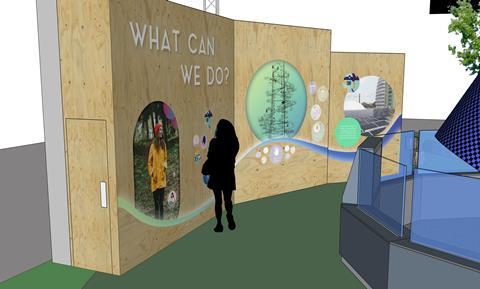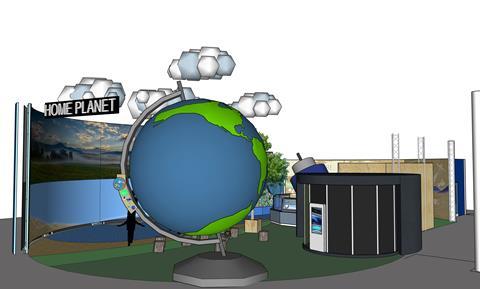The National Space Centre in Leicester has begun work to develop a new gallery dedicated to Earth, with pupils able to explore how satellite data is vital for managing our relationship with the air, water and land of our home in space when complete.

Home Planet, which is set to open by Easter, aims to inspire children at both primary and secondary school to consider how we can all live more harmoniously by telling the story of the human impact on the environment.
Kevin Yates, head of exhibition development at the National Space Centre, said: “We hope this new gallery will present the reality of the challenges we face but also help people to see that there are individual and collective changes we can make that will create a better future for us and all life on Earth.”
Gallery Highlights
An interactive projection floor featuring ice, water and sea creatures will respond to visitor movements, whilst a large screen above displays the many habitats and forms of life on our planet.
The main show will introduce the theme of rising global temperatures with a timelapse running from pre-industrial times through to present day. As the video plays, a giant thermometer in the area near the audience responds according to the temperature portrayed at points during the show.
An art installation by local artist Michelle Reader, based on the Great Wave off Kanagawa but made entirely from recycled materials, will highlight the impact that humans have on the environment.

Students will discover more about the health status of the planet through hands-on displays and infographics, many based on satellite data obtained by observing the air, water and land of our planet.
The centre’s Weather Pod will also receive an upgrade. The Video Booth Studio will place pupils at the heart of a news production reporting on environmental action from the past, present and future, with a recommended future vision to help Earth.
The National Space Centre welcomes over 80,000 school children each year for out-of-the-classroom learning day trips, with a range of sessions which link to STEM (Science, Technology, Engineering and Maths) learning. More information is available at www.education.spacecentre.co.uk.










